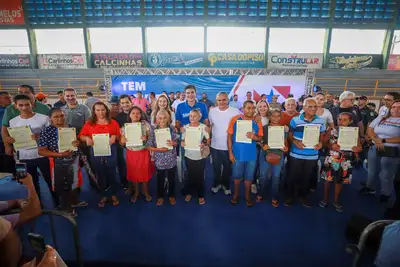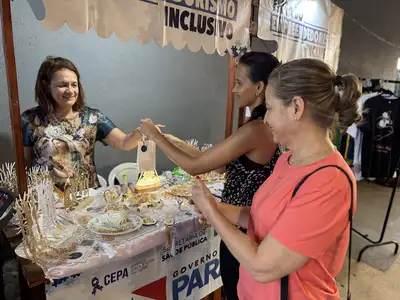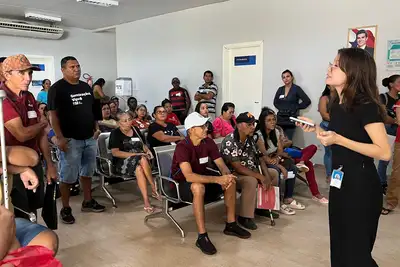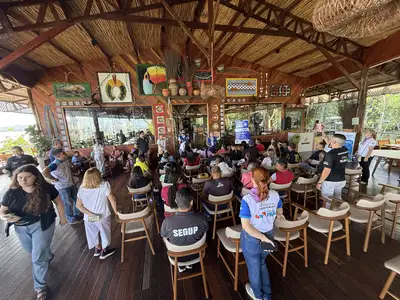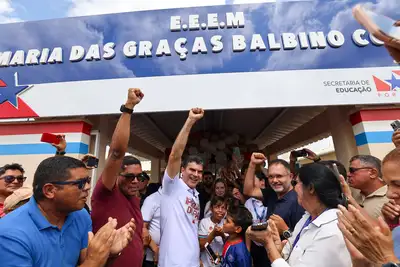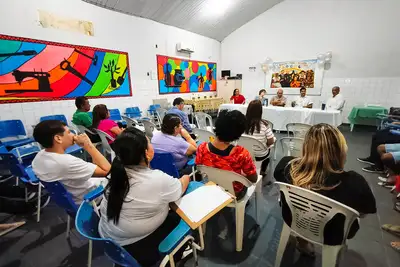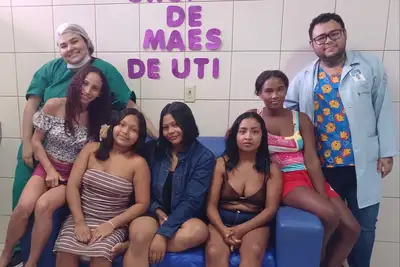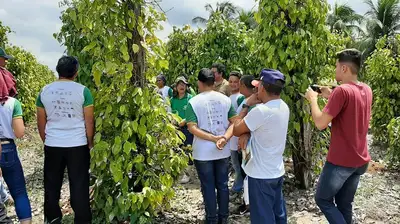Standing forest and sustainable development are commitments of the Government of Pará
On this September 21, the State reinforces integrated actions for environmental protection, forest restoration, and encouragement of the responsible use of natural resources
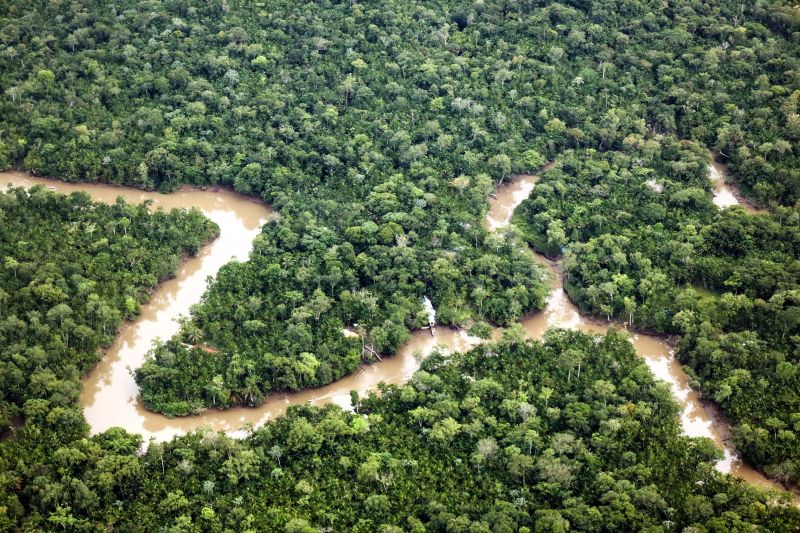
In Pará, where the forest is part of the identity of the people, Tree Day, celebrated on this September 21, is more than a symbolic date: it is an invitation to reflection and commitment to the preservation of nature and the future of the next generations. The state government has reinforced this commitment to the standing forest through the work of different agencies that, together, act to ensure that trees, forests, and the entire environment are protected, used responsibly, and, where necessary, restored. Whether through the creation of conservation units, encouragement of reforestation, guidance to farmers, or environmental education, Pará shows that it is possible to combine development and preservation.
Standing forest, dignified people
The Institute for Forest Development and Biodiversity of the State of Pará, Ideflor-Bio, is the agency that directly manages state conservation areas, such as parks, reserves, and public forests. In total, there are 29 conservation units, with a protected area of over 210 thousand square kilometers. To give you an idea, it is a larger area than Paraná, or twice the state of Pernambuco.
Ideflor works with three main objectives: preserve, conserve, and restore. This means that there are areas where the forest is kept completely intact and, in others, it is possible to use natural resources with care and planning. There are also places where the forest needs to be replanted because it was degraded in the past.
"We work to ensure that the forest continues to be a source of life, income, and dignity. We keep the forest standing, restore degraded areas, and encourage planting with the support of communities and companies. We help populations live sustainably from the forest, collecting nuts, cumaru, seeds, fruits, and using forest management, which generates income and conserves the environment. The forest is not just a sanctuary, but an essential instrument for the well-being of millions who depend on it,” explains Nilson Pinto, president of Ideflor-Bio.
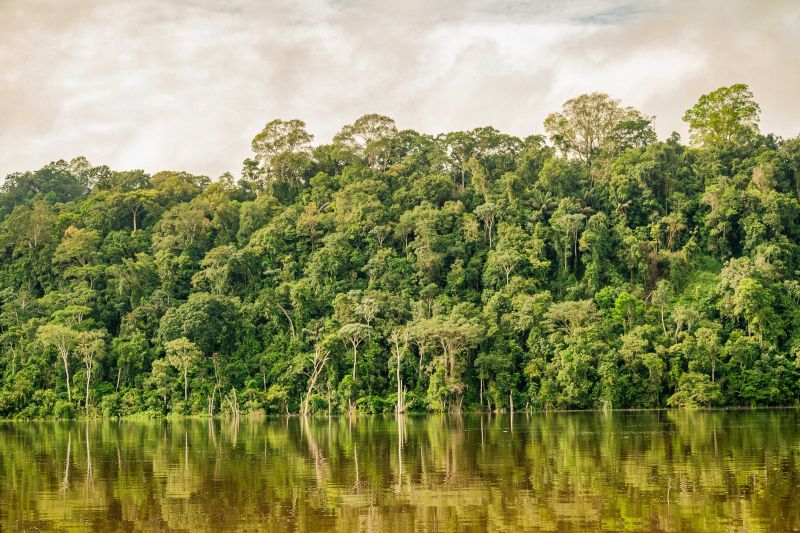
And where the forest has already been deforested, the work is one of recovery. In regions like Bragantina, for example, Ideflor technicians work with local residents to implement agroforestry systems, which mix food cultivation with the planting of native trees. Thus, the forest begins to grow again, and the community ensures its livelihood with better quality.
Educate to preserve
In addition to technical work, Ideflor-Bio invests heavily in environmental education actions, promoted in schools, communities, and conservation units, such as state parks. At the Utinga State Park in Belém, children and adults have the opportunity to learn, in practice, about the fundamental role of the forest in our lives, from air purification to temperature regulation and the protection of rivers and springs.
These spaces function as true bridges between nature and society. They are areas that offer leisure, knowledge, and environmental awareness at the same time. “We consider these areas noble because they allow for a deeper awareness of the population. Every child who enters the Utinga Park, for example, is a supporter we gain for the cause of sustainability,” says Nilson Pinto.
Technology to protect the forest
The Secretary of Environment, Climate, and Sustainability (Semas) is responsible for monitoring the state's forest cover and actions to combat illegal deforestation. According to data from the Program for Monitoring Deforestation in the Brazilian Amazon by Satellite (Prodes), from the National Institute for Space Research (Inpe), Pará showed a 21% reduction in deforestation rates in 2022 and 2023, followed by an even more significant drop of 27% in 2024. These results highlight the consistent progress in controlling forest suppression, consolidating the state's commitment to align its public policies with national and international efforts to mitigate climate change.
"On Tree Day, we reinforce Pará's commitment to protect, conserve, and recover our forests, recognizing their essential role in facing climate change. The results show that oversight, consistent public policies, and community involvement are effective, resulting from continuous monitoring, field presence, and the use of technology,” says Semas Secretary Raul Protázio Romão.
Among the innovative actions, he highlights the Triunfo do Xingu Recovery Unit, the first in the Amazon aimed at restoration with carbon credits. This model values those who preserve and attracts new investments. Another advance is the Jurisdictional REDD+ System, which transforms forest conservation into real benefits for traditional communities, strengthening sustainable development in Pará.
The forest as an ally of the rural producer
Emater-Pará, in turn, works on the ground, alongside those who live off the land: the family farmer. Through technical assistance, Emater guides producers on how to produce sustainably, maintaining standing forest areas and recovering what has already been degraded.
“We show that it is possible to plant, harvest, and preserve at the same time. With the Rural Environmental Registry (CAR), we map the areas and help the farmer comply with the legislation, maintain their legal reserve, and even profit from it,” explains environmental engineer Camila Salim from Emater.
She also highlights the “Bora Plantar” project, carried out during Environment Week, in which all 144 municipalities in Pará symbolically plant at least one tree. Additionally, programs like PSA (Payment for Environmental Services) provide financial resources to farmers who keep the forest intact and help restore the environment.
Stories that inspire
In practice, these actions change lives. This is the case of farmer Gerlany de Fátima Trindade de Oliveira, from the Chico Mendes community in Mosqueiro, Belém. She produces fruits, vegetables, chickens, and fish in a completely sustainable manner.
With the support of Emater, she replaced burning and deforestation with natural fertilization, made with leaves and organic waste. “Before, we used to clear land to plant. Today, I know I can produce much more without destroying. The forest helps, the land appreciates, and we live better,” says Gerlany. Text by Tamiris Amorim


